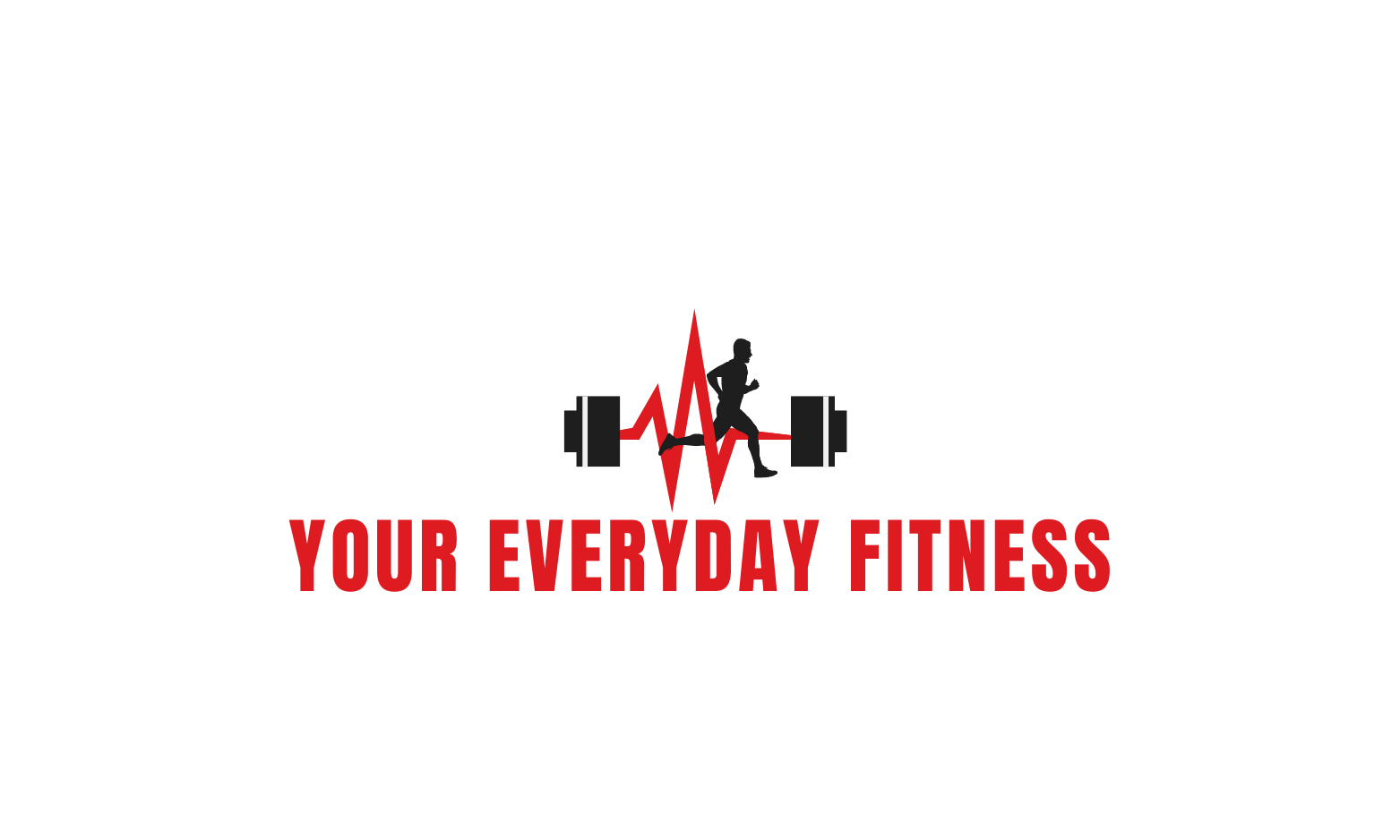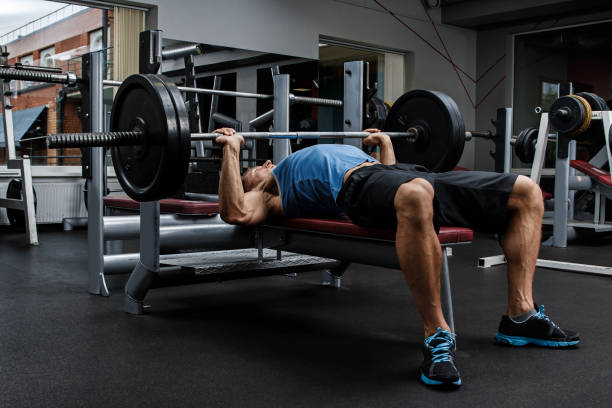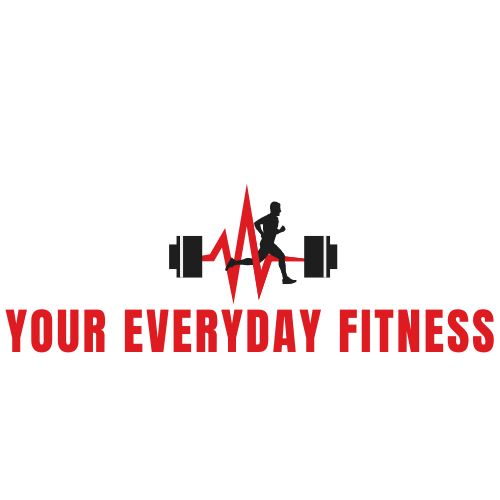Strength training isn’t just about lifting heavy weights; it’s about fueling your body right. What you eat can make or break your workout. Good nutrition gives you the energy to crush intense workout sessions and helps your muscles recover and grow. Many people wonder which is the best way to go: fasted vs fed strength training?
In 2024, there is another concept that has fascinated many across the world; intermittent fasting. In the midst of so much different information, it is hard to know what really works best.
Let’s get into why nutrition matters and whether you should eat before you train or go on an empty stomach.
Why Nutrition Matters for Strength Training
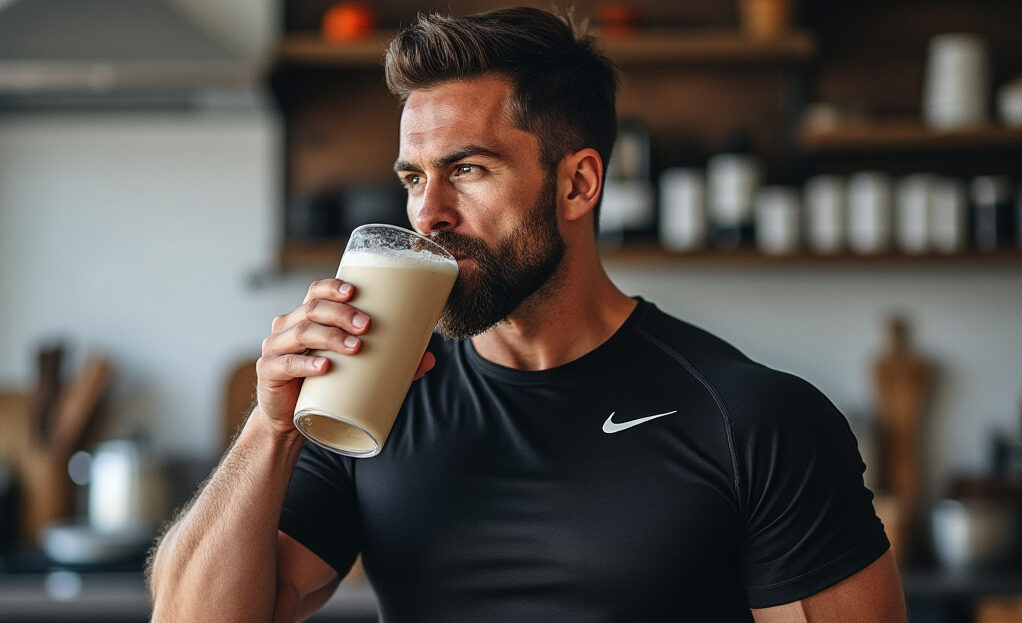
Nutrition can really make of break your gains from strength training. If you workout hard, but all you eat is junk – food without the right nutrients, overloaded with calories and additives – you simply will not make as good of progress as you could.
Eating the right amount of macronutrients (protein, carbohydrates, and fats) and knowing your own calorie intake, is the key to building muscle, getting stronger, and performing better.
Breaking Down the Role Macros
First of, protein is your muscle’s best friend. It helps repair and grow muscle tissue. Make sure you’re getting enough protein throughout the day from sources like chicken, fish, dairy, eggs, beans, and tofu. For a deep dive on how protein helps muscle growth, check out our article on protein timing for muscle growth.
Carbs are your main energy source. They fuel your workouts and help refill your muscle’s energy stores. Carbs give you energy to get through the day, and when you worked out hard and feel depleted, that is exactly the time to have carbs to fuel back up.
I’m sure you’ve heard of a “carb load”, right? That’s when people eat a lot of carbs before an athletic event so that their body has a storage of energy to fuel them through the event! Eating whole grains, fruits, and veggies can keep you going strong. For more on how carbs affect your strength, read our article on carbohydrates and strength performance.
Lastly in the world of macronutrients, fats. This is what many people get wrong; fats aren’t the enemy. They provide essential fatty acids that help with hormone production and overall health. Fats also work as a secondary fuel source when your body is low on carbs! Fats are great, but having the correct type (unsaturated is best), from the right sources is key. Go for healthy fats like avocados, nuts, seeds, and olive oil.
And of course, never forget about water. Staying hydrated keeps your body running smoothly by helping regulate temperature and lubricating joints. Drink plenty of water throughout the day and during your workouts. For more on hydration, see our article on hydration for strength athletes.
Fasted vs. Fed Strength Training: What’s the Deal?
Should you eat before working out or not? Some people swear by fasted training (working out on an empty stomach), while others need a snack or meal to get through their session. Both can work, but let’s get into the 2 options and let you decide what works best for you.
Fasted training might help with fat burning and insulin sensitivity, but it’s not for everyone. If you feel weak or low on energy, it might not be your best bet. On the flip side, eating before you work out can give you the energy boost you need.
The choice between fasted and fed training is personal. It depends on what works for you, your goals, and how your body reacts. Try both and see what feels right. Consider the intensity and length of your workout, your metabolism, and your eating habits. For more tips on what to eat before you train, check out our article on pre-workout meal plans.
By understanding how nutrition affects your strength training and figuring out whether fasted or fed training works for you, you can make smarter choices to fuel your workouts and hit your goals. Remember, nutrition is personal, so find what works best for you. You can always take to a certified nutritionist for help as well.
Fasted Strength Training
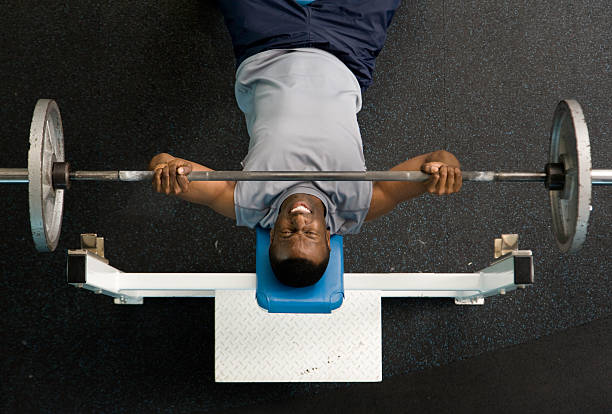
Fasted training means working out without eating first, usually in the morning before you have eaten anything at all. Let’s break down the good, the bad, and the ugly of fasted training.
The Benefits of Training Fasted
- Burn More Fat: Studies have shown that exercising in a fasted state can accelerate fat metabolism and increase lipolysis, making it especially effective for fat loss and improving body composition (Zouhal et al., 2020). This is because when you train without eating, your body taps into stored fat for energy since your glycogen (sugar) levels are low (remember what I said about fat being a secondary energy source?). This can be a win for those looking to shed some pounds.
- Better Insulin Sensitivity: More research has shown that fasting increases circulating free fatty acids and ketones while lowering insulin levels, thus promoting metabolic flexibility and fat utilization during exercise (Zouhal et al., 2020). Working out on an empty stomach can make your body better at using insulin to move sugar into your cells. This can help keep your blood sugar levels in check.
- Sharper Focus: Some folks find that skipping breakfast before a workout helps them concentrate better. Without food digesting in your belly, you might find it easier to stay in the zone. I know that sometimes too much food before a workout can slow me down, while training before I eat can have me in a state of focus that makes me feel energetic.
The Potential Downsides of Fasted Training
- Less Energy: While fasted training supports fat burning, it may come with energy drawbacks, especially for high-intensity sessions. Studies suggest that fasted training might limit performance during intense workouts due to reduced glycogen availability (Zouhal et al., 2020).
- For the best results, aim for moderate-intensity training during fasting periods to prevent performance dips. No food means no quick energy. This can make your workouts feel tougher, especially if you’re doing something intense or long-lasting. For most people, strength training fasted will be OK, unless you train extremely hard. If you are doing endurance training longer than 60 minutes, fasted training is simply not the best idea.
- Muscle Loss Risk: While fasted training can increase fat oxidation, it may carry a slight risk for muscle catabolism (aka muscle breakdown/loss), particularly if protein intake is insufficient during feeding periods (Zouhal et al. (2020)). Protein needs should be met in the eating window to help prevent muscle breakdown during fasted strength training. A protein shake or snack before you hit the gym can help protect those gains.
- It’s Not for Everyone: Some people feel dizzy or weak when they work out on an empty stomach. Your experience might be different from someone else’s, so listen to your body. It makes a lot of sense that if you have no fuel in your body, you might burnout. Think of trying to drive a car without gas.
Before you decide if fasted training is for you, think about your goals, what you like, and your health.
Remember, your body knows best. If you’re unsure, talk to a healthcare pro or a dietitian. Trying different things to see what works for you is the key to crushing your strength training goals.
Eating Before Strength Training

Eating before your workout, known as fed training, can make a big difference. Now let’s go to the other side, and break down the good, the bad, and the ugly of fed training.
The Benefits of Fed Strength Training
- More Energy: If your goal is endurance or prolonged exercise, eating beforehand will improve your performance. Studies have shown that pre-exercise eating bolsters performance in longer aerobic sessions (Aird et al., 2018), providing additional fuel for sustained energy. This might be especially relevant for athletes training for endurance events. Eating before you hit the gym gives you a quick energy boost. This means you can work out harder and longer without feeling like a zombie.
- For lifting purposes, having a meal consisting mostly of carbs, with some protein will work best for a pre-workout meal. The bigger the meal, the more time you need in between eating and the beginning of your workout. Check-out our full pre-workout nutrition guide for a more in-depth explanation.
- Better Performance: With the right fuel in your tank, you can lift heavier, run faster, and jump higher. Studies have shown that ingesting carbs before a workout can lead to a longer time to exhaustion, and more pushing power. This means you can do more sets, reps, with heavier weight if you are fueled properly. Also, caffeine’s before a workout has been shown to improve performance, but caffeine intake depends on each individual.
- Muscle Gains: Eating protein before your workout helps build and repair muscles. High-quality protein dosed at 0.4–0.5 g/kg of lean body mass (LBM) before and after exercise maximizes the anabolic response to resistance training (Aragon AA, Schoenfeld BJ, 2013). Think chicken, fish, eggs, or even tofu. Your muscles will thank you.
- Less Muscle Breakdown: Eating before you train can help keep your muscles from breaking down, especially if you’re trying to lose weight but keep your muscle mass.
The Potential Downsides of Fed Strength Training
- Tummy Troubles: Eating too much or too close to your workout can make you feel bloated or give you a stomachache. Like I said earlier, the more you eat, the longer you’ll want to wait before working out. Find the right balance that works for you. Eat foods that you know sit well in your stomach and don’t slow you down!
- Everyone’s Different: What works for one person might not work for another. Some people do great with a big meal, while others might prefer a small snack or even no food at all. Just because an influencer online told you to eat this crazy meal before lifting, doesn’t mean you should do it! Fed strength training only works if you tailor it to your own body.
- Time Crunch: If you’re always on the go, finding time to eat before working out can be tough. This is because you might need to plan ahead to make sure you have time to digest. If you try to squeeze in a meal and then rush to the gym, it can actually negatively effect performance, and just overall how you feel the rest of the day.
Finding What Works for You
The best way to figure out what works for you is to experiment. Try different foods and timings to see how your body reacts. Pay attention to how you feel and perform during your workouts.
I have tried so many different combos; a small meal 30 minutes before a workout, a big meal 2 hours before a workout, a meal high in carbs, a meal high in protein, no meal at all, just caffeine, etc. Everytime I tried something, I’d take note of how my workout went, and how I felt during and after my workout. Pay attention to these things, and once you find what works, stick to it!
Fasted vs Fed Strength Training: Making the Right Choice

Deciding whether to hit the gym on an empty stomach or after a meal is a personal call. I’ve said it 10x already, but I’ll say it again; it all boils down to what works best for you.
Let’s break it down so you can make the best choice for your workouts.
What to Think About
- Workout Intensity: If you’re going hard or planning a long session, a bit of fuel might keep you going strong. But if your workout is short and sweet, fasting might not slow you down.
- How You Feel: Everyone’s different. Some folks crush it after a snack, while others feel sluggish. If you feel fueled up and full of energy, maybe you are ready to go! If you have been feeling really hungry all day, maybe get a snack in before hitting the weights. Pay attention to your body and go with what feels right.
- Your Goals: If you’re all about building muscle, eating before you train will help with muscle growth and recovery. But if you’re looking to burn fat or boost endurance, fasting might be your go-to. Know the benefits of each method, and think about what suits your long term goals the best.
What Works for You
Here are some quick example scenarios to help you decide:
Fasted Training: Go for it if:
- You like working out on an empty stomach.
- Your sessions are short or not too intense.
- You’re aiming to burn fat.
- You want to lower calorie intake and lose weight.
Fed Training: Choose this if:
- You feel more pumped with some food in your system.
- Your workouts are long or intense.
- You’re focused on building muscle and strength.
- You want to bulk up!
Don’t forget, eating right throughout the day is key to supporting your workouts and recovery. The pre-workout meal is not the only thing that will affect your workouts. If you eat junk all day, it will most certainly lead to a worse lift. So, this means having balanced meals with enough protein, carbs, and healthy fats is key.
If you’re unsure of what will work best for you, talking to a dietitian or healthcare pro can give you personalized advice based on your needs and goals. These people get paid to be a master at this stuff, and your body and health are the most important things in the world! So spend the time and effort to take to pros that can really help you grow.
How to Fuel Up Right Before You Lift
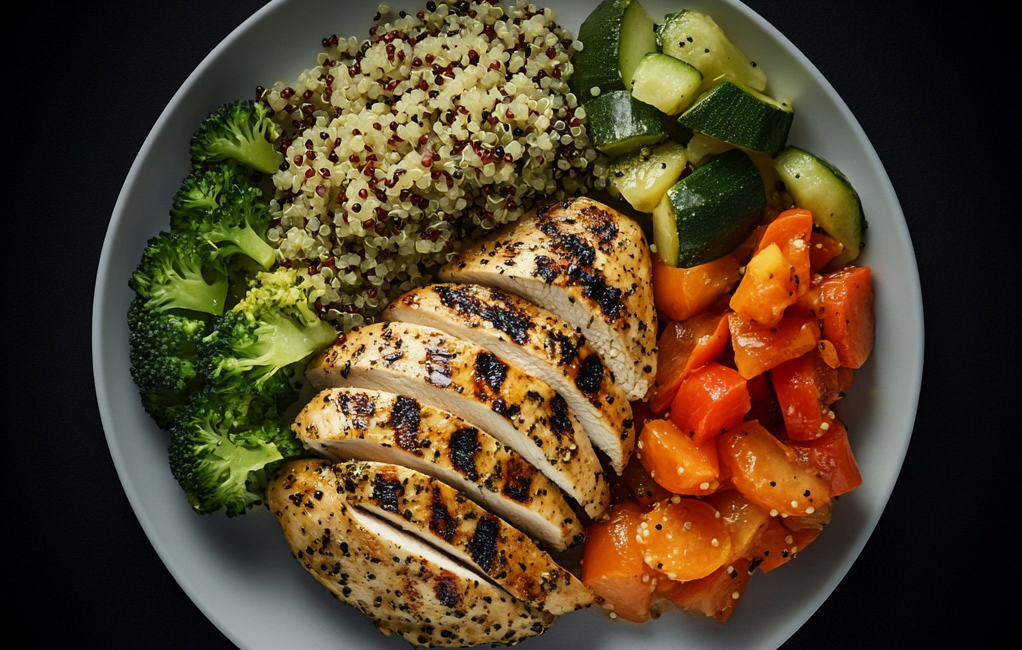
Getting the right nutrients in your system before a lift can make a world of difference. Let’s break down two key parts of pre-workout nutrition: what to eat and when to eat it.
What to Eat Before You Work Out
For your pre-workout meal, you need a good mix of protein, carbs, and a bit of healthy fat. These nutrients give your muscles the juice they need to perform.
Protein: For good proteins that can help you grow muscle and build strength, think of chicken, fish, eggs, dairy, or plant-based options like tofu and beans. These are complete proteins with the best nutrient bases. Aim for about 20-30 grams of protein in your pre-workout meal.
Carbs: To get the most energy and fuel for your workout, go for complex carbs like whole grains, fruits, and veggies. They release energy slowly, keeping you fueled throughout your workout. Shoot for 30-40 grams of carbs.
Healthy fats: These are important, but don’t overdo it before a workout. Too much fat can slow digestion and make you feel sluggish. Stick to small amounts from sources like avocados, nuts, and seeds.
Here’s a simple pre-workout meal idea:
| Nutrient | Example |
|---|---|
| Protein | Grilled chicken breast |
| Carbs | Brown rice |
| Healthy Fat | Sliced avocado |
Listen to your body. Adjust portions based on your needs and goals. If you’re vegan, check out our vegan strength training nutrition guide for more tips.
When to Eat Before You Work Out

Timing is everything. You want to give your body enough time to digest and absorb the nutrients. Aim to eat your pre-workout meal 1-3 hours before you start training. If you don’t have the time for that, you gotta have a smaller meal. If you have a smaller meal, give yourself 30 minutes before you start working out to digest it and allow the nutrients to do their job.
Eat too close to your workout, and you might feel bloated or get indigestion. Wait too long, and you could run out of steam. Find a sweet spot that keeps you energized. Once again, trail and error.
If you’re short on time or prefer a lighter option, go for a snack with protein and carbs. Try Greek yogurt with berries, a banana with almond butter, or a protein shake with fruit.
Experiment with different timings and foods to see what works best for you. And don’t forget to stay hydrated. Drink water before, during, and after your workout to keep your performance up and help with recovery. This is key. Make sure you are hydrated and getting enough electrolytes to help you stay energized during and after your workout. Drink lots of water, and mix in an electrolyte drink if needed.
If you feel you’ve mastered the pre-workout nutrition, check out our article on post-workout nutrition to get fully dialed in on your workout meals.
By eating the right foods at the right times, you can power through your workouts and see better results. Fuel up, stay strong, and enjoy the gains!
References
- Zouhal, H., et al. (2020). Exercise Training and Fasting: Current Insights. European Journal of Applied Physiology, 120(1), 1-19. https://doi.org/10.1007/s00421-019-04261-w
- Frawley, K., et al. (2018). Effects of Prior Fasting on Fat Oxidation during Resistance Exercise. Journal of Exercise Physiology, 21(5), 40-50. PMCID: PMC6033499
- Aird, T. P., et al. (2018). Effects of Fasted vs. Fed-State Exercise on Performance and Post-Exercise Metabolism: A Systematic Review and Meta-Analysis. Scandinavian Journal of Medicine & Science in Sports, 28(5), 1476-1493. https://doi.org/10.1111/sms.13054
- Rothschild JA, Kilding AE, Plews DJ. What Should I Eat before Exercise? Pre-Exercise Nutrition and the Response to Endurance Exercise: Current Prospective and Future Directions. Nutrients. 2020 Nov 12;12(11):3473. doi: 10.3390/nu12113473. PMID: 33198277; PMCID: PMC7696145.
- Ormsbee MJ, Bach CW, Baur DA. Pre-exercise nutrition: the role of macronutrients, modified starches and supplements on metabolism and endurance performance. Nutrients. 2014 Apr 29;6(5):1782-808. doi: 10.3390/nu6051782. PMID: 24787031; PMCID: PMC4042570.
- Aragon AA, Schoenfeld BJ. Nutrient timing revisited: is there a post-exercise anabolic window? J Int Soc Sports Nutr. 2013 Jan 29;10(1):5. doi: 10.1186/1550-2783-10-5. PMID: 23360586; PMCID: PMC3577439.
